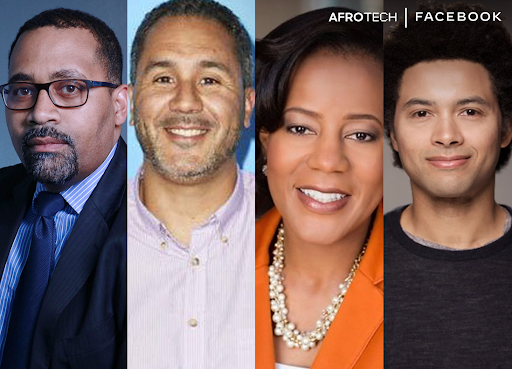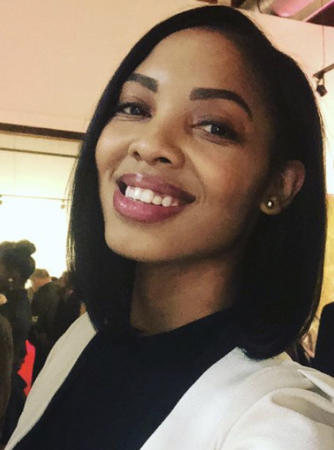“Real people. Real issues. Real talk.” It’s the mantra that Black leaders at Facebook have embraced this year as part of an ongoing initiative to amplify and elevate Black voices within the company. Aware of their visibility within the technology giant, they’re also using their own voices to advocate for racial and social equality.
Over the summer, Judy Toland, Vice President & Head of Scaled Solutions – global business marketing, Yael Maguire, Vice President of Engineering – Facebook connectivity and Dan Reed, Vice President of Global Sports & Media Partnerships, came together for the debut episode of Facebook’s new “Amplified Unscripted” series.

Moderated by Facebook’s Vice President of Global Marketing and Partnerships, Alvin Bowles, the panel discussed ways that Black leaders are leveraging their seats at the table for the greater good. With Bowles acknowledging that “The core of our conversation is really around what it’s like to lead while being Black. I think those of you on the call who are people of color, share this responsibility and I think many of you probably feel the way we do.”
Adding, “I think we are a little bit exhausted. Perhaps even a little angry. It has been difficult for a lot of folks, not only here at Facebook but in general. The world feels a bit different right now and I think not acknowledging that would be disingenuous to the conversation we are trying to have.”
In the first of a series of conversations on everything from race to change in the workplace, the panel explored ways that Facebook has empowered its Black associates and why they’re comfortable being their authentic selves, unapologetically.

This is an exhausting time. Times that are driving all of us to have to do more than what we may have had to do in prior lives or prior times in our careers. Of 26 years on my professional journey, I just want you to know that there is nowhere else I would rather be right now to lead than Facebook. It allows me an ability that I have not had, and I’ve worked at some amazing companies – GE, Ford Motor Company, Wells Fargo and other great companies with great jobs and great people – but right now, I’m able to lead authentically as my full self and my identity and be unapologetic about it. It’s been that way since I first joined Facebook. I am less concerned right now as a leader about fitting in, to move up. I no longer have time for that. Being a Black leader at Facebook allows me to be me, it is not about balancing. Who I am, is who I am.

First and foremost, I have to say that the first thing I do is make sure people know that I’m Black, because I realize I show up sort of ambiguously. I think it is important that I make that, go out of my way to sort of make sure that people understand that I come from that perspective and come from that background and experience. I think it is really important, there’s a lot of people who work on our teams who never had a Black manager before. I think it is important that they understand who we are as people, that they understand our background, experience and perspective. Which might be different than other folks they’ve worked with. I think showing up in that way as a leader and being not only a great leader, but being an authentically Black person and bringing your experience is really important. I agree 100 percent with Judy that this is an environment where that is okay. It is not a balancing act, it is not ‘you sort of have to know when to put on the mask and take off the mask.’ You show up every day as your full authentic self.

I resonated with a lot of the comments from Judy and Dan. I think honestly from day one, I felt like I could be my authentic self. I never had to wear a different mask from my experience. From my engineering experience and technical experience of being a Black leader — I am in a lucky position I will say which is that I do get to focus my day job on focusing on trying to uplift Black communities. Usually outside of the U.S. in Africa and other parts of the world, that is part of my day job. I get to work on connectivity and we are focused on trying to make sure people who do not have access to the same means of connectivity. There are hundreds of millions of people who don’t have that. That is missed opportunities, missed economic opportunities and missed educational opportunities.
Miss the episode? We’ve got you covered here. Interested in joining the Facebook team? Click here to discover current listings and opportunities.
This editorial is brought to you in partnership with Facebook.


